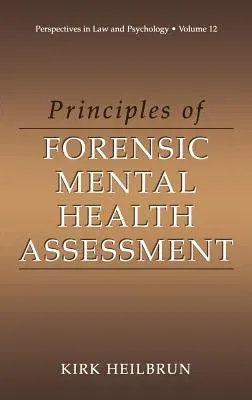Kirk Heilbrun
(Author)Principles of Forensic Mental Health Assessment (2001)Hardcover - 2001, 31 October 2001

Qty
1
Turbo
Ships in 2 - 3 days
In Stock
Free Delivery
Cash on Delivery
15 Days
Free Returns
Secure Checkout

Part of Series
Perspectives in Law & Psychology
Part of Series
Perspectives in Law & Psychology Perspectives in Law & Psych
Print Length
344 pages
Language
English
Publisher
Springer
Date Published
31 Oct 2001
ISBN-10
0306465388
ISBN-13
9780306465383
Description
Product Details
Author:
Book Edition:
2001
Book Format:
Hardcover
Country of Origin:
US
Date Published:
31 October 2001
Dimensions:
24.08 x
15.54 x
2.64 cm
ISBN-10:
0306465388
ISBN-13:
9780306465383
Language:
English
Location:
New York, NY
Pages:
344
Publisher:
Weight:
707.6 gm